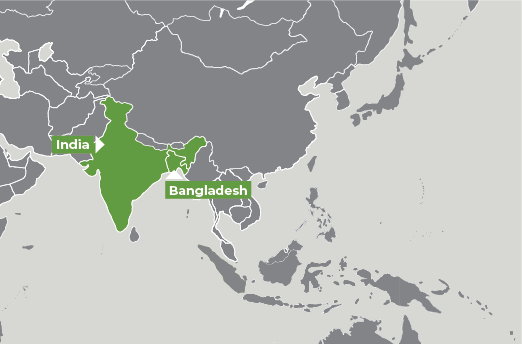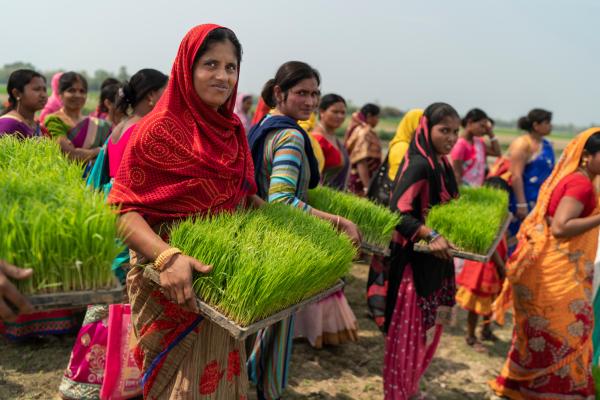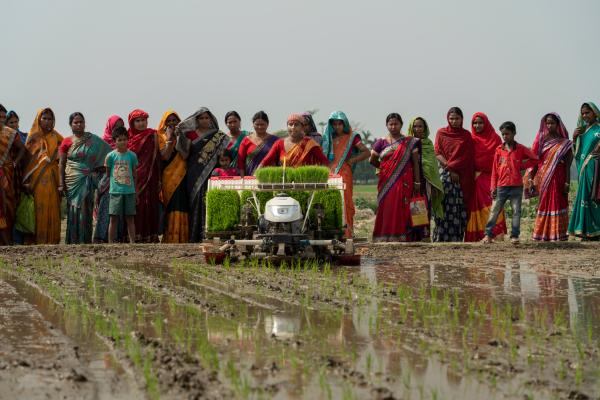Overview
This project aims to define the processes and practices (technical options, scaling interventions, policy settings and implementation) that can be applied to achieve sustainable, efficient, diversified food systems at scale in the Eastern Gangetic Plains.
The Eastern Gangetic Plains of Bangladesh, India and Nepal are home to 450 million people, with the world’s highest concentration of rural poverty and a strong dependence on agriculture for food and livelihood security.
The area has the potential to become a major contributor to South Asian regional food security, but agricultural productivity remains low and diversification is limited. This is because of poorly developed markets, sparse agricultural knowledge and service networks, inadequate development of available water resources, and low adoption of improved, sustainable production practices.
Current food systems in the Eastern Gangetic Plains do not provide smallholder farmers with profitable livelihoods, nor the population of the region with balanced diets, and put unnecessary pressure on natural resources. Transformation of the food system, with viable technical options for smallholders and interventions for scaling, is essential.
ACIAR and DFAT have invested more than $25 million into diverse farming systems research in this region over the past decade. The new Rupantar project builds on existing work and partnership networks to provide a link between research outputs and development goals, through the demonstration of inclusive diversification pathways, definition of processes for scaling to the millions of smallholder farmers in the region, and generating a better understanding of the policies that support diversification.
Research objectives
- Defining the processes and practices (technical options, scaling interventions, policy settings and implementation) that can be applied to achieve sustainable, efficient, diversified food systems at scale in the Eastern Gangetic Plains.
- Understanding the context for diversification in the Eastern Gangetic Plains.
- Defining and implementing diversification pathways using collaborative and inclusive approaches.
- Deepening understanding of the trade-offs and synergies associated with diversification pathways.
- Engaging and communicating with change-makers to ensure outputs are used and integrated into independent programs.
Project outcomes
- Demonstrated pathways for equitable and sustainable diversified food systems in the EGP.
- Improved evidence-based policies for planning and development programs that promote diversification.
- Self-sustaining diversification pathways that are owned by local partners and promoted without ongoing project support.






